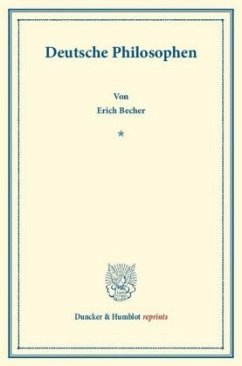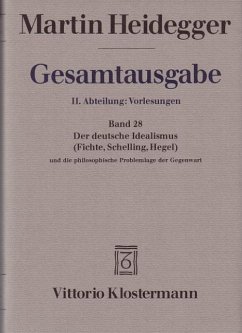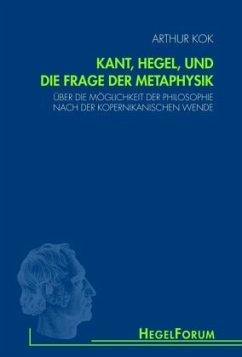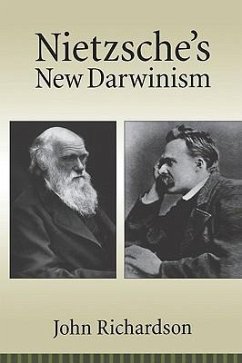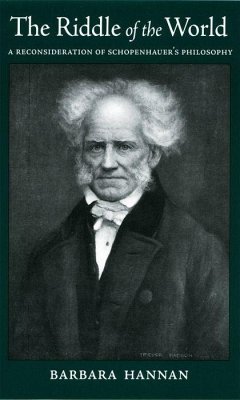
Freedom and Reason in Kant, Schelling, and Kierkegaard
Versandkostenfrei!
Versandfertig in 1-2 Wochen
115,99 €
inkl. MwSt.

PAYBACK Punkte
58 °P sammeln!
Michelle Kosch examines the conceptions of free will and the foundations of ethics in the work of Kant, Schelling, and Kierkegaard. She seeks to understand the history of German idealism better by looking at it through the lens of these issues, and to understand Kierkegaard better by placing his thought in this context. Kosch argues for a new interpretation of Kierkegaard's theory of agency, that Schelling was a major influence and Kant a major target of criticism,
and that both the theory and the criticisms are highly relevant to contemporary debates.
and that both the theory and the criticisms are highly relevant to contemporary debates.
Michelle Kosch's book traces a complex of issues surrounding moral agency - how is moral responsibility consistent with the possibility of theoretical explanation? is moral agency essentially rational agency? can autonomy be the foundation of ethics? - from Kant through Schelling to Kierkegaard. There are two complementary projects here. The first is to clarify the contours of German idealism as a philosophical movement by examining the motivations not only of its
beginning, but also of its end. In tracing the motivations for the transition to mid-19th century post-idealism to Schelling's middle and late periods and, ultimately, back to a problem originally presented in Kant, it shows the causes of the demise of that movement to be the same as the causes of its
rise. In the process it presents the most detailed discussion to date of the moral psychology and moral epistemology of Schelling's work after 1809.
The second project - which is simply the first viewed from a different angle - is to trace the sources of Kierkegaard's theory of agency and his criticism of philosophical ethics to this same complex of issues in Kant and post-Kantian idealism. In the process, Kosch argues that Schelling's influence on Kierkegaard was greater than has been thought, and builds a new understanding of Kierkegaard's project in his pseudonymous works on the basis of this revised picture of their historical
background. It is one that uncovers much of interest and relevance to contemporary debates.
beginning, but also of its end. In tracing the motivations for the transition to mid-19th century post-idealism to Schelling's middle and late periods and, ultimately, back to a problem originally presented in Kant, it shows the causes of the demise of that movement to be the same as the causes of its
rise. In the process it presents the most detailed discussion to date of the moral psychology and moral epistemology of Schelling's work after 1809.
The second project - which is simply the first viewed from a different angle - is to trace the sources of Kierkegaard's theory of agency and his criticism of philosophical ethics to this same complex of issues in Kant and post-Kantian idealism. In the process, Kosch argues that Schelling's influence on Kierkegaard was greater than has been thought, and builds a new understanding of Kierkegaard's project in his pseudonymous works on the basis of this revised picture of their historical
background. It is one that uncovers much of interest and relevance to contemporary debates.





